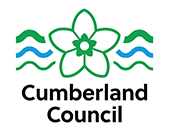Maintenance of roads was officially the responsibility of parish surveyors of the highways between 1555-1835. However, neither these unpaid officials nor the parish rates were able to cope with the wear and tear caused by the increase in wheeled traffic during the late 17th and early 18th centuries. Many major roads were therefore taken over by turnpike trusts. These were established by private acts of parliament (or under the general Turnpike Act of 1773) which empowered them to build and maintain a section of road in return for charging a toll on traffic using the turnpike.
Turnpike trusts were unable to compete successfully with the railways. Roads were gradually 'dis-turnpiked' during the 19th century and handed over to the charge of highway boards (created in 1835 to replace the parish surveyor) and eventually to the county councils (established in 1889).
Links to online catalogues of holdings:
TURNPIKE TRUST RECORDS
Carlisle-Eamont Bridge (Northern Division)
Carlisle-Eamont Bridge (Southern Division)
Newcastle-Carlisle (Military Road)
Penrith-Wigton (Sebergham-Hutton section): contact Carlisle Archives directly (collection DVAN)
TURNPIKE TRUST ACCOUNTS in WESTMORLAND QUARTER SESSIONS (online catalogue link for accounts for the following: Ambleside; Appleby-Kendal; Brough-Bowes; Brougham Bridge; Heronsyke-Eamont Bridge; Kirkby Lonsdale, Kendal and Milnthorpe; Maiden Castle and Barrows Bridge to the coal works; Milnthorpe-Levens; Sedbergh)
TURNPIKE TRUST PLANS in WESTMORLAND QUARTER SESSIONS (online catalogue link for accounts for a small number of plans for proposed turnpike roads (1817-1824) )

